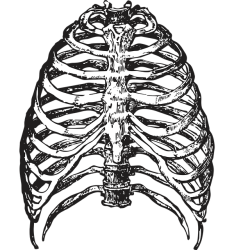A multitude of reports have emerged in recent years denoting the over use of pain killers and other medications. With narcotic pain killers, in particular, data suggest a four-fold increase in opioid use since 1999, and over 100,000 deaths by opioid overdose during same time period. The data also indicate a close correspondence between the increase in prescriptions for pain killers and pharma sponsored marketing, ‘research’ and policy changes that have inculcated medical agency guidelines over the last decade.
For women, this is a particularly troubling trend, as other research indicates we are the primary targets of narcotic prescribing; women take 50% more pain killers than men. We also take 36% more medications than men in general. Speculation about why women take more pain killers than men, often involves psychosocial characteristics including a reduced sensitivity to pain, a predisposition to pain causing diseases, and a predilection to report the pain to one’s physician. Women seek out medical treatment at a much higher rate than men.
What often fails to get mentioned is that:
- Pain medications don’t work as well in women because as we’ve reported before few females, rodents or otherwise, are used in the development of these medications.
- Even when female animals or women are used in drug development research, cycling hormones are not analyzed as factors in the effectiveness of the medication.
- For the myriad of pain related disorders affecting women, many lack evidence-based diagnostic criteria (less than 30% of Ob/Gyn practice guidelines are based on actual evidence) and frequently physicians and the lack of effective diagnostic criteria hastens many to presume an underlying psychosocial or mental health issue.
I personally think the psychosocial arguments that women are more sensitive to pain than men are nonsense. Rather, I think there is a lot more inherent to our physiology that makes pain related conditions not only more likely, but more difficult to treat.
Consider for example, the menstrual cycle and childbirth. These amazingly complex, biochemically radical, pain-inducing, often life-altering experiences are just a ‘normal’ part of female existence. I dare any man to experience the exponential and repeated cyclic change in biochemistry, akin to a repeated drug addiction and withdrawal pattern, that is the female menstrual cycle. The myth of female hypersensitivity to pain, based largely upon the ineffectiveness of pain or medications that were never designed for her changing biochemistry, is just that, a myth. And though I do admit, some humans are more sensitive to pain than others, the contrived experimental methods that designate women as hyper-sensitive do great damage to our understanding of women’s health and the differing pharmacokinetics across the menstrual cycle, pregnancy, postpartum or menopause.
And then of course, there is endometrial sloughing, necessitating a cramping mechanism to propel the tissue outward or the grandmother of all pain experience, childbirth where women deliver 8lb humans through a cavity opening that expands only to 10 centimeters, often times choosing to not utilize pain medications. These ‘normal’ events of a woman’s life are not indicative of a ‘hypersensitivity to pain’.
No, I don’t buy this mumbo jumbo that women are somehow more sensitive to pain than men. If anything, most women have a higher tolerance to everyday pain than most men. But there is a rationale to perpetuating this myth; it limits innovation in women’s health.
Why innovate when a company can make billions prescribing the same old medications at higher and higher dosages, to more and more people? Why address the needs of half the population, when one can blanket the market with drugs for the entire population? And to that point, why develop more accurate diagnostic criteria or more effective medications for conditions that only effect a small subset of the total population; especially when medications developed over 50 years ago can be used? If these medications are addictive, have side effects that necessitate other medications and are extremely difficult to withdraw from, well then, those are just added bonuses. It’s a wonderful business model, albeit a little less than ethical.
Despite the obvious marketing excess, we as consumers bear as much responsibility for the increase in narcotic prescriptions as does the pharmaceutical industry. We are letting this happen. Let’s face it, it is much easier to take a pill to make the pain go away (or eat a pint of ice cream to alleviate stress) than go after the root problem. It is difficult to address root causes. It is especially difficult if one is suffering from a medical condition that is chronic, pain-inducing, poorly understood, not easily diagnosed, and for which there are no effective medications. Women disproportionately suffer from these types of conditions – think fibromyalgia, endometriosis or even migraines. We also make 80% of all family medical decisions. So ladies, we need to stand up and begin educating ourselves and our families about health and disease. We must demand more research and we will probably have to lead it ourselves.
















I’ve had several doctors assume I was lying about never being abused because I had such painful pelvic exams. A doctor and her nurse actually said to me, “Come on, it can’t hurt that bad. A speculum is smaller than a penis.” I had dense adhesion connecting my rectum and recto cervical space, and deep cul de sac endo. Once removed, I have no pain with exams. It’s good to remember that doctors are just normal people with medical degrees. They don’t know everything. I just have to tell myself that.
I can’t believe she actually said that. Wow. And yes, physicians are human with all the human frailties and foibles, ignorance and incompentencies.
Great point Deb, a fraction of the population, male and female are more sensitive in general. HSP is not something I am familiar with. Would make a great blog post!!!
Something I think we all miss, is that pain means something is wrong and rather than just try to alleviate the pain, although that may well be the immediate need, we should being trying to figure out what is causing it and try to fix it.
Approximately 20- 25% of the population is “sensitive” in general. Men and women alike may be a Highly Sensitive Person (HSP), and described and defined by Elaine Aron Ph.D. Sensitve people are more senstive to pain. They’re also more sensitve to sounds, smells (chemical sensitivities), other people’s moods, and other subteleties in their environment. They’re more likely to try hard to avoid making mistakes, avoid violent media, and be moved by the arts or music. This is a gfit. Like a canary in the coal mine, HSPs reaction, or lack of reaction, to life circumstances and substances can be a guide for what supports everyone’s wellbeing. Pharmaceuticals of any kind are generally not a good match for an HSP. HSPs generally do have great results with medicines that are more in sync with nature – naturopathy, homeopathy, chinese medicine or ayurvedic. Beyond pain relief, these all strive to get to the true root cause of the pain and eliminate the causative factors.
This is an interesting twist in how to curtail the excessive prescribing of opioids- sue the distributor.
http://www.usatoday.com/news/nation/story/2012-02-27/painkiller-abuse-DEA/53275844/1
Originally mistook Cardinal Health as an insurer. Suing the insurer would be an even more interesting twist.